|
1/23/2018 Last Night On Broad StreetPhotography by Stephen Dyer by Eric Zrinsky January 22, 2018 Last night on Broad Street, it was damn near utopian. Frat boys and sorority girls with solo cups and facepaint high-fiving. Septum-pierced hipsters in Kelly green throwback crewnecks. Homeless people shout-singing “Fly, Eagles fly” along with business types in suits. People in cars honking their horns—not to intimidate or encourage anyone to get the fuck out of the way—but to offer mechanical cheers of solidarity to all of the pedestrians clogging the street. Color ceased to divide us. At least for tonight, we’re all black and green. I can hear the groans of those unexpectedly reading something about sports in a literary publication. You’re not alone. A lot of my artist friends tend to view sports as a thing to mock—something enjoyed by mindless meatheads and unthinking cavepeople. I won't even try to recount the number of “sportsball” comments I saw on social media leading up to the NFL Conference Championship games on Sunday. That may very well be the sentiment elsewhere, but it’s different in Philadelphia. The artists, the musicians, the jocks—we’re all the same here. We’re like some kind of modern American melting pot where it’s ok to be multifaceted and enjoy things that are seemingly at odds with one and other. Much to chagrin of many of we “high-thinkers,” it’s possible to appreciate the beauty and syntactic elegance of iambic pentameter while also reveling in the sheer ballet of an effectively orchestrated Run-Pass Option. I’ve seen countless photographers host openings at my art gallery unironically wearing 76ers gear. I’ve played and attended shows at venues all across the city with innumerable fans in Phillies hats. It’s a grand social experiment where all of the lunch tables in highschool got thrown into the Large Hadron Collider and we all emerged with pieces of interests from everyone else. Full disclosure: I’ve never considered myself a jock—probably the complete antithesis of whatever that distinction may mean to you. I grew up skateboarding and playing in punk bands and celebrated a “can’t fucking tell me anything” attitude well into my 20s. But still, sports found a way into most of my formative years. I played Rec soccer until I reached high school and even found myself going out for the freshman football team. Hell, maybe I’m a poor example, but Brian Heston and Malik Abdul-Jabbaar (two of my favorite Philadelphia poets) certainly aren't. Brian’s work gracefully depicts the struggles of working class violence in the Kensington section of the city during the high-crime 1980s. His language is vivid; it’s heartbreaking. It’s good fucking poetry. And aside from winning several awards for his writing, he knows how to dissect an Eagles defensive performance over a couple of shitty beers better than most people I know.
These are thinking, complex people who make beautiful art. Last night, I saw people laughing and crying in joy. I saw strangers hug one another and, just for a moment, forget how different they looked or where they would be tomorrow morning. I saw a city come together, if only temporarily. I heard a collective voice. Nota Bene: I would like to comment and recognize that the NFL is far from a perfect organization— very very far from it. Concussions and the effects of traumatic brain injuries are often largely unaddressed and underreported. Economic and political disparities between primarily white owners and primarily black players remains an ongoing and very real and significant problem. Domestic abuse committed by players against their loved ones frequently goes under-punished, or not even commented on. The unfair treatment of a brave man exercising his constitutionally protected right to protest is a prime example of racial inequality and the upholding of white privilege and supremacy.
Many players take a vested interest in the communities they represent. I’m instantly reminded of all of the great work that Connor Barwin’s “Make the World Better” Foundation did for underserved communities in Philadelphia while he was an Eagle or the incredible efforts of J.J. Watt in the wake of Hurricane Harvey. The National Anthem protests helmed by Colin Kaepernick and followed-up by NFL players of color have effectively brought racial inequality, police brutality, and other racially charged issues to the national stage - the management of these issues within the organization is an incredible letdown in the face of the bravery of Kaepernick -- as they continue to uphold white privilege at the expensive of a skilled athlete’s career and courage. Within the Eagles organization, Malcolm Jenkins - assisted by Chris Long - entered into long discussions regarding the racial inequality within the league and the treatment of black players - both as athletes within the NFL and citizens who routinely feel unsafe as a result of police brutality. [Jenkins has also been vocal about criminal and social justice reform, his guest to the Super Bowl is Kempis Songster]. Having these conversations: attempting to honor the excitement while acknowledging the bad is what we’re trying to do: as artists, as individuals, as sports fans and as activities. These voices and these conversations remain an important vehicle for the arts; and are essential in dissecting the intersection between the arts and athleticism; and we believe that attempting to understand both is important to the mission of Meow Meow Pow Pow Lit.
featuring cover from the illustrator FD Bedford Marie: Peter Pan I don’t think I’m allowed to let this theme pass us by without admitting that I’m obsessed with Peter Pan. What started as a relatively normal childhood game of pretend, a play enacted and re-enacted with my mom’s best friend’s son and our collective team of younger brothers, has in my adult years turned into something much larger and deeper. No longer does my love of the story hinge on the possibility of flight, or my desire for eternal youth, or the availability of rad merchandise at Hot Topic; now, I’ve become steeped in its shadows as well. For the story of Peter Pan is full of shadows, both literal (the boy’s shadow lost and regained at the beginning, the children’s silhouettes against the moon, the depths of the Neverland’s forests and jungles) and metaphorical. Wendy must stay home and darn socks by hearthlight while Peter and the boys whisk away on various adventures, and although she is arguably the story’s true protagonist, it is not for her that the book is named. As a woman, she exists only in the shadows of a world that favors men. In theatrical and movie versions of the tale, Mr. Darling and Captain Hook are traditionally played by the same actor, a casting choice that throws a pretty heavy Daddy-Issues shadow of its own. But, what I find most interesting, is knowing that when J.M. Barrie was first creating this world and its characters, it wasn’t Peter with whom he most identified. Barrie wrote Captain Hook to be an embodiment of the darker parts of his own character: his insecurities, his temper, his fear of whom he might too easily become. The author and the villain even share the same first name: James.
featuring the covers of the Ballantine editions Sam: Lord of the Rings My favorite use of shadow in a narrative has to be in Lord of the Rings. Both in the books and in the movies, the "Shadow of Mordor" is a vital piece to the narrative puzzle. Think, in LotR there is never a concrete villain. Sauron is just a magical eye (or cat butt) depending on who you ask. There are what amounts to faceless Orcs and some video-game-like bosses in Saruman and the Witch-king. All of these villains together make up the one true villain, the force that Frodo and Co. are fighting against—the power and influence of Mordor. Tolkien's villain is nothing more than the idea of what is to come, the shadow of a future that will curse and kill everything Frodo loves. This is what makes the use of Shadow in LotR so effective. It's a looming presence that feels insurmountable. How do you kill an idea? You go to the source of the idea and refute it. The idea is of ultimate power, an evil-godlike dictator. The ring of power suggest to those who wear it that they can be that person, that they can use the power for good. But, as we learn, absolute power corrupts absolutely. And Frodo fails to refute this idea.
featuring covers from the Little, Brown and Company issue and the William Morrow & Company Janie: Black is the Colour of My True Love’s Heart When thinking of a work that utilizes shadows, this title is the first thing that came to mind, Black is the Color of My True Love’s Heart. It’s a mystery novel that I read when I was twelve while on vacation. Maybe it was the title, which would sorta indicate a utilization of color theory. And color theory makes me think of contrast and contrast makes me think about manipulating shadows and highlights in Photoshop. I looked up the book and its plot, since the only things that have maintained since I first read it is the enthusiasm I had while devouring the whole book in one day and that it was a mystery. Everything else was relegated to the dense cloud of memory. As it turns out, I remember nothing of it. I was genuinely surprised when I read the plot—I had to re-read the plot twice to be, like, “there were folk musicians involved? I thought this was set in Victorian England? Is this actually the same book?” (It was). And maybe that’s how shadow work unintentionally functions in this narrative. The plot of this mystery is now a mystery to me in my old(er) age. The only thing that has struggled through the shadows is the memory of enthusiasm and enjoyment while losing myself in the reading of this book. What creeps through the dust of one’s mind is reduced to a fragment, a feeling, a snapshot of a time that was lived and now not-lived. This plot has been lost in the shadows of my mind for twenty-one years—maybe it’s time for me to bring it into the sunlight of remembrance again. "The plot of this mystery is now a mystery to me in my old(er) age. The only thing that has struggled through the shadows is the memory of enthusiasm and enjoyment while losing myself in the reading of this book. What creeps through the dust of one’s mind is reduced to a fragment, a feeling, a snapshot of a time that was lived and now not-lived." 1/8/2018 Interview with Lyndsay Hall, Writer, Blogger and Creator of “agorawho?” a mental health Video Blog.photography courtesy of Cassandra Panek Sam and I first met Lyndsay through our Antioch University MFA program in Los Angeles. We were both newbie Marin’s and she a veteran Zephyr (our cohorts arranged by exotic winds). I, Levi, found that both Lyndsay and I had experienced and written about mental health issues fairly extensively. I’m not sure either of us liked writing about it; rather, it was something both of us were more or less compelled to write about as writers who experienced depression and anxiety. I remember one time we went to the Tattle Tale—the closest bar to our Culver City campus and sometime venue of spontaneous late-night karaoke sessions—where we traded information on various medications we were on and how our particular maladies were manifesting themselves in our daily lives. At the time, Lyndsay was mostly writing fiction and I nonfiction, and now she is writing nonfiction and blogging and I have switched to fiction—such is the writing life. (Sam) Lyndsay is an absolute delight, an incredible writer, a caring person, and wonderfully honest. She is a unique person, which of course makes her a fascinating interview. Plus, she's been battle-tested as I have interviewed her once before my social-justice oriented lit mag, immix (see here: http://www.theimmix.com/interviews/2017/5/23/lyndsay-hall-sevilla-writers-house). She is exactly the person that we want to kick off the guest section of the Pup Pup Blog, and she's now honorary Pup numero uno in our book. Writing about mental health is not joke. It's incredibly difficult personally, and it's notoriously frustrating craft-wise, and yet, Lyndsay's final products always impress. She's already a Pushcart-nominated writer, so don't be surprised if during her illustrious career-to-come you see the words Pulitzer associated with her name. Currently, Lyndsay is the creator and writer of a video blog, or “vlog” as the kids are calling it, called “agorawho?” along with the written word blog Sunday Whiskey. She is re-launching with new content on “agorawho?” on January 10, 2018. The mission of which is to, "destigmatize mental illness, and prioritize and make space for mental health." (Newsletter subscribers will receive something in their inboxes on January 3rd.) Here is our interview with Lyndsay along with links to her various creative endeavors. Enjoy! https://www.youtube.com/channel/UC3UqeoR1thCBifpkrQ-rWvg http://www.agorawho.com/ http://www.sundaywhiskey.com/ Why did you decide to start a mental health blog? I'm constantly, consciously and unconsciously, seeking creative projects. For the past year, I’ve sought a multimedia project that was immersive and personal, in the vein of a memoir except not. I first considered a focus on mental health while on a camping trip; a few weeks earlier, I’d (er, maybe drunkenly) purchased a two-person tent, sleeping bag, lantern, and first-aid kit, because I’d always wanted to wake up in a tent and it’d always made me anxious. I’m agoraphobic. Most places besides my bedroom make me anxious. Eventually, I explode sideways and make rash decisions. In this case, I bought a tent. So, I go on this camping trip, and a few months later, I go to the Deep Creek Hot Springs with a couple friends. The day included a five-hour round-trip drive, beginning mid-morning (mornings are always toughest for me); a two-mile round-trip hike; and hours swimming naked in a river. I was away from cell phone reception, public restrooms (unless bushes count), and most importantly, my home. I told my friends about my anxiety. They understood. They understood a year earlier, too, when I’d canceled plans to join them at the hot springs. I realized identifying and talking about anxiety helps. I realized human compassion can and will surprise. And I realized I’m capable of doing things, albeit with some difficulty, more difficulty than many, despite my diagnosis---and most importantly, I learned that that difficulty doesn’t need to be a bad, shameful thing. A week later I woke up with a jingle in my head that went “agorawhat? agorawho?” It sounded like a sassy shaming of my mental illness (but not of myself), and it returned to me some of my power. I called my mother and asked what she thought of creating a blog on mental health (she also has agoraphobia, but is currently symptom-free, so she knows better how to cope). She dug the idea. I bought the domain name. Did you always intend for it to be video? Absolutely not. A few weeks before I decided to create the blog, two men at a French restaurant told me I’d be good for YouTube, and I laughed. It felt too LA to me, which is a stupid as shit (not to mention judgmental) reason not to explore a creative endeavor. Once I knew I was starting “agorawho?” as a blog, I thought back to that comment and considered my love for the internet and video editing. For lack of a better explanation, it made sense. I started writing for the internet back in 2011 with my blog Sunday Whiskey, but my history with the internet dates back to 2000 when I’d built websites and hung around message boards with other nerdy, internet type. I found genuine connections with people I’d otherwise never have met: I had a community outside of and an escape from my middle school and hometown. The two never overlapped. When I launched a blog all those years later, I fell in love with the dialogue it sparked: I emailed with a doctor in London for a few months. A woman recognized me in a nightclub and thanked me for motivating her to move to New York. I discovered early that vulnerability and transparency inspire connection and acceptance. YouTube is a massive, accessible platform. I’m taking advantage. What have you learned about yourself in this process? I’m learning how to manage my expectations, which in many ways means I’m learning to become an artist. I want to create content that’s helpful and worthy of an audience’s time. Like all artists, I want to create work that is important and compelling, and I believe my work is that. But what artists don’t say, or rather, what they do say but we don’t hear, is that an artist’s work does not end once a single piece is complete. You have to keep on, and sometimes that means keeping on to an empty room, simply for the love of it. You show up, and you show up, and you show up countless times before anyone knows your art exists. I’ve also learned I am capable of forgetting to eat and postponing sleep: I often do when I’m editing videos. Also also, I talk with my whole body. What advice would you give people who are wondering if they are dealing with mental health issues? Talk to a professional. Hell, even if you don’t think you’re dealing with a mental illness, talk to a professional. We all have our shit. I worry people don’t seek help because of stigma and shame. Or maybe they’re like me: They don’t think they’re sick enough. I knew I experienced panic attacks almost daily, and eventually, multiple times a day. I knew I self-medicated. I knew for months straight I’d experience drops in my energy and motivation. I researched agoraphobia and depression, and thought, Yes, that’s me, but also, Other people have it worse. Other people need it more. It’s weird, the way we do that: Invalidate our experiences. The world kicks us down enough; we might as well have our own back. So, yeah. Seek professional help. Take care of and prioritize yourself.
Let me explain. The Spoon Theory demonstrates how someone with an often-invisible illness, like depression, like Lupus, expends mental and physical energy throughout the day. The theory goes, a person begins the day with a set number of “spoons” and loses one for each activity performed. One spoon for getting out of bed, one spoon for teeth brushing, and so on. As of this writing, I’m not in a depressive episode. My spoons feel endless: I wash my face before bed, walk my dog without complaint, eat all my meals. I neglect responsibilities out of laziness, hangovers, and lack of sleep. It’s different. When I’m in a depressive episode, each of those responsibilities claims a spoon, and sometimes that which occur later in the day fall by the wayside because, frankly, I just can’t. I’ve no more spoons. I’ve no more energy. Depression often gives the sensation of being physically drained, daily, for weeks and months at a time. Depression often feels as though withering. Washing one’s face loses importance. Talk of mental health has been in the news recently, especially in the case of gun control and sexual predators. What role should mental health play in our nation-wide discussion of gun control? Should Congress allow the CDC to study what affects mental health has on gun violence? I want to say “sure,” because I believe mental health and gun violence and the link between the two is valid and, well, the more you know, right? Ultimately, if the conclusion drawn helps those struggling with their mental health, I’m on board. But! But! I believe it should be studied with the understanding that the two are not mutually exclusive. A “desire to commit murder” or a “disregard for human life” is not a diagnosis in the DSM; violence itself is not a mental illness. Hell, a “desire to commit murder” doesn’t even qualify as an insanity defense in a court of law, and studies of jailed murderers don’t yield a strong link between violence and mental illness, either. Which is to say, targeting the 3-5% of violent, mentally ill persons who shoot others feels futile at best (and like we’re treating the mentally ill as criminals at worst). The stronger link between gun deaths and mental health is suicide: Two-thirds of all gun deaths, in fact. While not all suicides can be prevented, restricting the accessibility of guns has proven to lower the suicide rate. And while we’re at it, if we want to study the most significant and least discussed link between mass murder and mental health, let’s look into the PTSD and additional devastating effects of survivor’s guilt and other aftermath-related trauma. Frankly, I’m the first person to “diagnose” an ex-lover as a sociopath or narcissist because he didn’t reciprocate my feelings or he treated me poorly. Truth is, more likely than not he won’t meet the qualifications. This is to say, I understand the desire to use mental illness as an excuse: it's a neat package, it's diagnosable, and there's hope the behavior can be fixed. Less desirable is this: People have the capacity for evil. The idealist in me wishes this wasn’t so, but alas. Most mental illnesses are nonviolent, and pointing to mental health as an explanation for mass murders feels erasing and demonizing and icky. Do you think mental health has a lot to do with sexual predators, or is it more a socialized thought and lack of education? Or a combination of both? Mental illness does not explain or justify the actions of these men currently being accused of sexual harassment. Sexual predators are born of society. Some studies suggest sexual offenders have a higher rate of mental illness compared with the general society, and those to whom that applies should seek help for their disorders. They should also, independent of that, speak to therapists and female confidants about their gross mistreatment of women, read literature on consent, and take a long, hard look at where their dicks, mouths, and hands have been. A man who sexually assaulted me on a date had been diagnosed with depression. He did not sexually assault me because of his depression. (Depression is nonviolent.) He sexually assaulted me because he had a lousy understanding of consent. This is an important distinction. We have undereducated our boys at the expense of our girls. Again, if we want to study links between sexual predation and mental health, it is best we look at the victims: Victims of rape and sexual assault are at an increased risk for developing depression, PTSD, eating disorders, anxiety, and substance abuse disorders. But to understand the epidemic, we should study the link between sexual predation and masculinity. What advice would you give people who are just now being diagnosed with a mental health issue? Many times, at a low point in my mental health, I’ve crumbled to the floor and screamed, “I’m not okay, I’m not okay.” A few years ago, I learned during these times to whisper to myself, “I’m okay. I’m okay.” So, this isn’t exactly advice but: You’re okay. You're okay. I promise. A few years ago, I learned during these times to whisper to myself, “I’m okay. I’m okay.” So, this isn’t exactly advice but: You’re okay. You're okay. I promise. 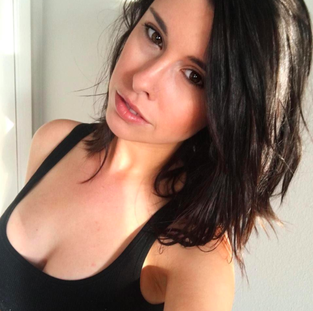 Lyndsay Hall earned her MFA in Creative Writing from Antioch University, and she teaches creative writing to children and teens. Her writing has appeared in online and print journals and magazines, including her mental health blog (obviously) and her personal one, Sunday Whiskey. In 2015 she founded the Los Angeles literary community Sevilla Writers House. In her free time, one might find her dancing in her underwear, serenading her dog, eating with her hands, or all three at once. You can stalk her on Instagram and Twitter @lyndshaaay. |
AuthorOur fabulous blog team Archives
June 2024
CategoriesAll 12 Songs Art Art And Athletes Book Review Chorus Blog Date This Book Game Of Narratives Guest Blog Letter From The Editor Lifehacks Movies Of 2019 Music Pup Sounds Smackdown Strive For 55 Summer Playlists |
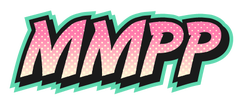
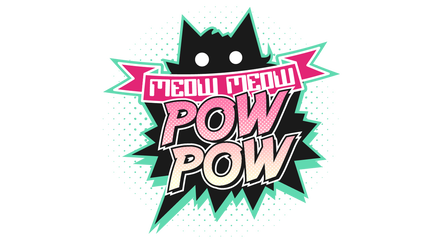
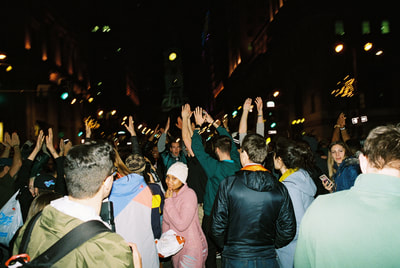
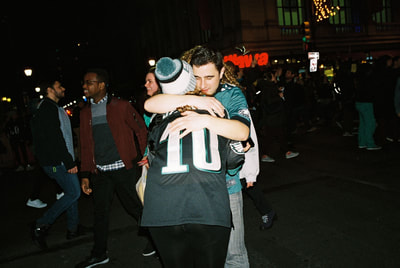
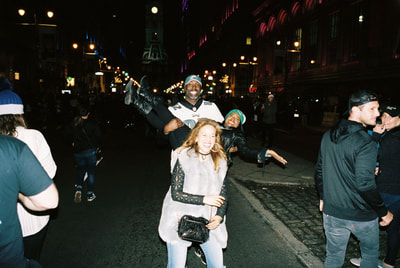
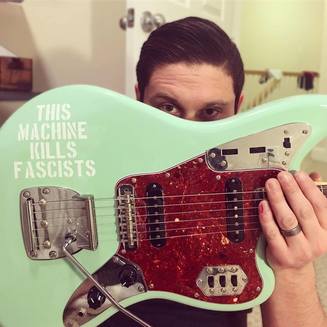
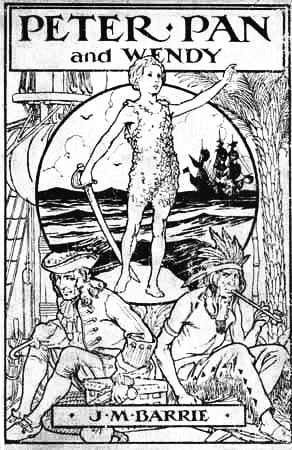
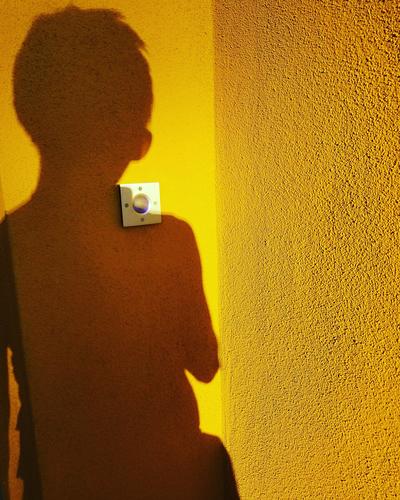
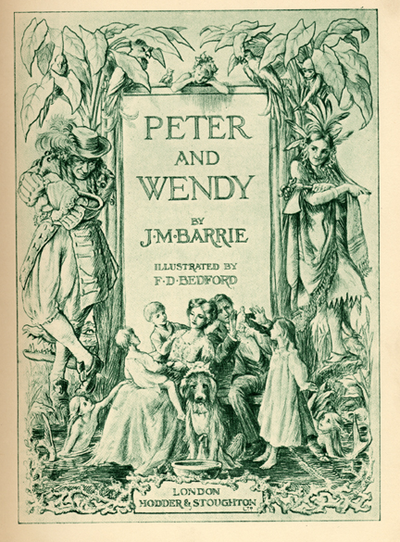
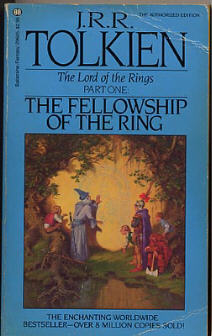

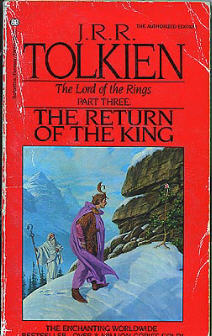
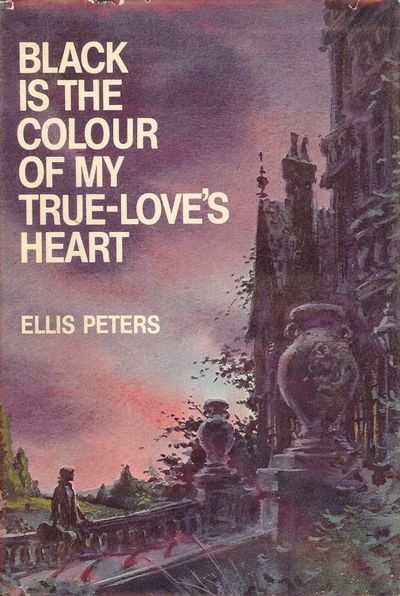
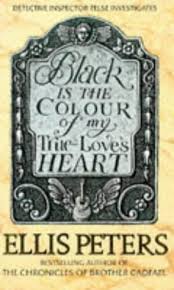

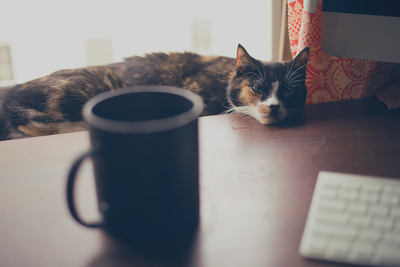

 RSS Feed
RSS Feed